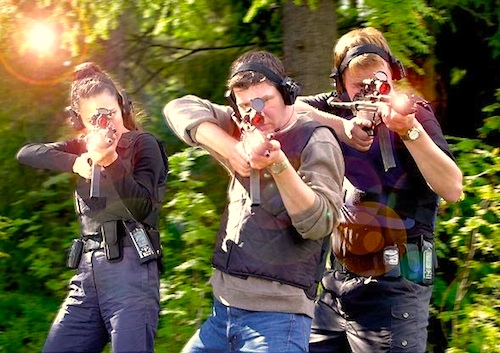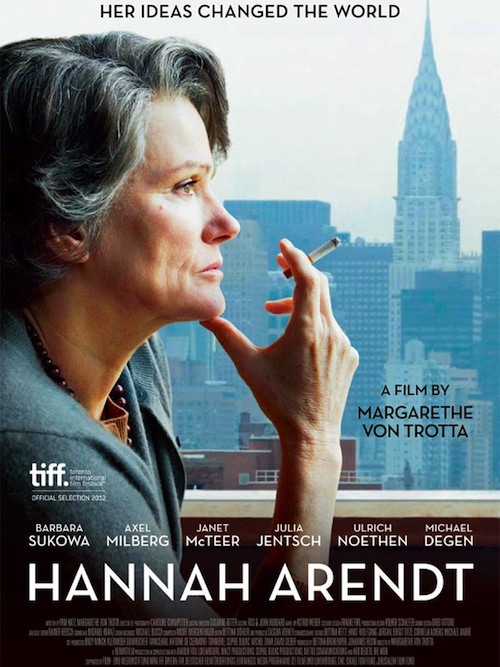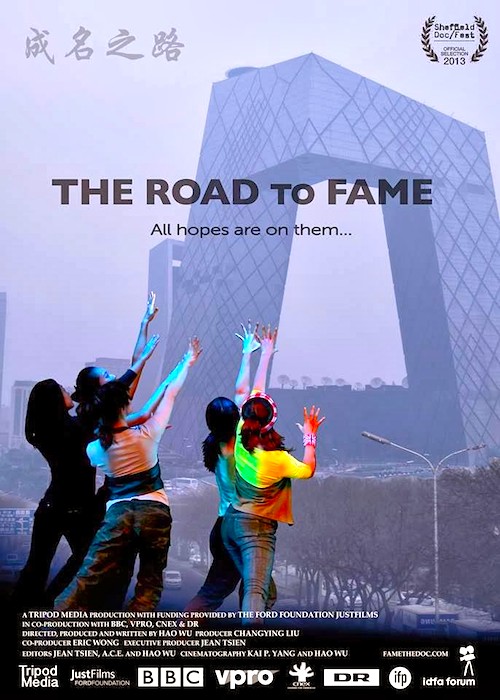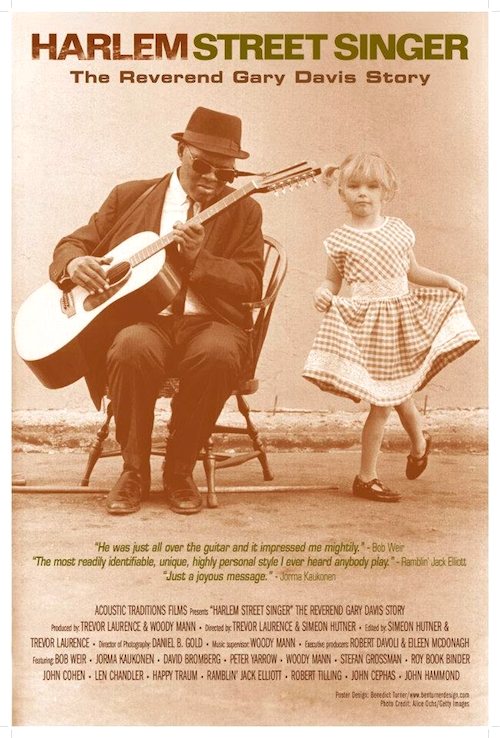
By Joe Bendel. By Swedish standards, Johan Falk is practically Dirty Harry. For obvious reasons, he has rather strained relations with Gothenburg’s top brass. In fact, he is kind of-sort of forced to take justice kind of-sort of private in Anders Nilsson’s Johan Falk Trilogy, the first three installments of the Swedish theatrical/straight-to-DVD franchise, which are now available as a three-DVD set in America from MHz Networks.
Falk has no living family. His only friends are cops. It is also implied he has more than enough money for his needs. That does not leave a lot of pressure points for a gangster like Leo Gaut to squeeze in Zero Tolerance. Not one to follow protocol, Falk drops by Gaut’s pad to express his disappointment after the murder suspect forces the three witnesses testifying against him to change their stories. In retrospect, leaving his fingerprints behind was something of a mistake. Framed for assaulting Gaut, Falk goes on the lam to clear his name. Easily the weakest of the trilogy, Zero is mostly standard issue Fugitive stuff, but it perks up a bit during the third act.
While Falk is back on the force when Executive Protection begins, the handwringing commissioner has relegated him to a future of endless paperwork, despite the protestations of his superior officer, the ever patient Sellberg. Tired of cooling his heels, Falk will do what he does best when a childhood friend asks for his help. Sven Persson had hired Nikolaus Lehman, a former Stasi agent turned international consultant, to deal with a protection racket targeting his Estonian factory. Not surprisingly, the cure turns out to be worse than the disease. Of course, the cops are incapable of taking preventative action, so Falk signs on with the private security firm run by his old colleague Mårtenson, to handle Persson’s case personally.
A well turned crime drama-grudge match, Protection gives viewers ample opportunity to see Swedes lock and load. It also features private contractors as the good guys and an old Commie as the bad guy. As Falk, Jakob Eklund makes a completely credible hard-nosed action figure. He also broods nicely during moments of existential angst. Series screenwriters Nilsson & Joakim Hansson keep the tension building while establishing several key themes they will revisit in The Third Wave.

It is Mårtenson who first uses the Toffler-esque term to describe the concerted campaign of shadowy octopus-like syndicates to secretly acquire legitimate businesses, but Falk’s former boss Sellberg picks up on it when he is appointed the EU’s top cop for organized crime. His get-tough rhetoric attracts the attention of a British banker, whose abusive husband Kane specializes in facilitating dodgy transactions. Fearing her testimony, Kane’s co-conspirators send a hit squad after her, but the unsuspecting Falk just happens to be vacationing in The Hague.
Forced to improvise, Falk will struggle to protect Sellberg’s witness as well as his girlfriend and her daughter. He will have some help from Devlin, a British security specialist, who is slightly disappointed to discover the firm he founded was acquired by a conglomerate with secret mob ties. Again, Nilsson & Hansson keep the stakes high, uncorking an early shocker and staging considerable melee during the big climax, which casts radical WTO protestors in a decidedly negative light.
Falk wears well on Eklund and he gets some effectively gritty support from British actors Nicholas Farrell (of Chariots of Fire fame) and Prime Suspect alumnus John Benfield, as Devlin and his chief deputy Stevens, respectively. Veteran Swedish actor Lennart Hjulström also lends the entire series some stately gravitas as Sellberg. A solidly entertaining series overall (especially Protection and Wave), the Johan Falk Trilogy is recommended for fans of both British and Scandinavian mystery series. Recently released on DVD from MHz, it is now available for Thanksgiving binge viewing.
Zero Tolerance LFM GRADE: B-
Executive Protection LFM GRADE: B+
Third Wave LFM GRADE: B+
Posted on November 26th, 2013 at 2:23pm.




